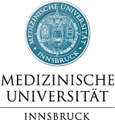Donnerstag, 13.03.2025
87. Innsbrucker Gender Lecture with Sophie Lewis and Friederike Beier - „Imagine otherwise: Rethinking and reinventing care“
18:00 - 20:00 Uhr
Hörsaal 5, Innrain 52e
Anmeldung ist nicht erforderlich
Eintritt / Kosten: Nein
Vortragende/r
Sophie Lewis, Friederike Beier
Panel discussion with Sophie Lewis, independent researcher and Friederike Beier, Otto Suhr Institute for Political Science, Freie Universität Berlin
Weitere Informationen
„Imagine otherwise: Rethinking and reinventing care“
with Sophie Lewis and Friederike Beier
In this discussion, concepts of care will be scrutinized and a joint discussion will take place on how these can be made more inclusive and fairer in order to move towards a future of shared care based on solidarity and collective responsibility.
In her book “Abolish the Family”, published in 2022, Sophie Lewis provides a feminist critique of the idealized concept of the family. She argues for the abolition of the family as a solution to the so-called 'care crisis'. Sophie Lewis also takes up these ideas in other texts. The article “Maybe we could be each other's moms” questions traditional notions of intimacy and care. Referring to the series "Sex Education", Lewis emphasizes that Gen Z is developing an idea of intimacy and care based on asexuality and a trauma-informed and caring approach. These ideas allow “that we develop norms around taking time off from sex [...] or expanding non-genital vistas of intimacy” (Lewis, 2022b). With Lewis this perspective can be understood as a utopian step based on “mutual comradely mothering”, which allows us to redesign intimate relationships. In the article “A marriage abolitionist says: ‘I... do?’” (2023), Lewis takes a critical look at the traditional concepts of care perpetuated by the institution of marriage and the privatization of the household. These structures limit care to the private sphere and only allow care to be provided and expected within one's own family, while marginalizing other ways of living and loving. Lewis proposes that we transform these traditional concepts by focusing on the deprivatization of care, through public kitchens, shared living spaces and collective support networks to enable inclusive care.
In her anthology “Materialist Queer Feminism” (2023), Friederike Beier addresses the interconnectedness of gender, sexuality and capitalism. Beier argues that the crises of economy, health and ecology reinforce gendered and intersectional inequalities. In order to counter authoritarian, anti-feminist backlashes, supposed differences must be overcome and common ground sought. This anthology brings together texts on historical and current debates in materialist feminism and queer theory. Central to this is the question of how patriarchy, heterosexism and capitalism are intertwined and how feminist theory and practice can overcome economic conditions as well as gender and sexuality. In the article “Kinder, Küche, COVID” (2022), Beier analyzes the effects of the coronavirus pandemic on care work from a materialist-feminist state theory perspective. She shows that state measures are exacerbating the existing care crisis and shifting the burden of care work further into the private sphere. These trends call for a reorganization of care work, away from privatization towards collective and publicly funded solutions in order to achieve a fairer distribution and recognition of care work.
Lewis and Beier's contributions make it clear that feminist utopias of care are not just theoretical visions, but require political and social change. Both emphasize the need to detach care from traditional, patriarchal structures and to promote collective, solidary networks. By addressing the materiality of gender and sexuality and their embedding in capitalist structures, their reflections contribute to the deconstruction of existing hierarchizing inclusions and exclusions.
In the discussion, we will explore the questions of how care can be made more solidary and fairer and how it can be rethought between individual autonomy and collective care, but also what difficulties, challenges and resistance exist in the implementation of new care practices.
Veranstalter
Center Interdisziplinäre Geschlechterforschung

